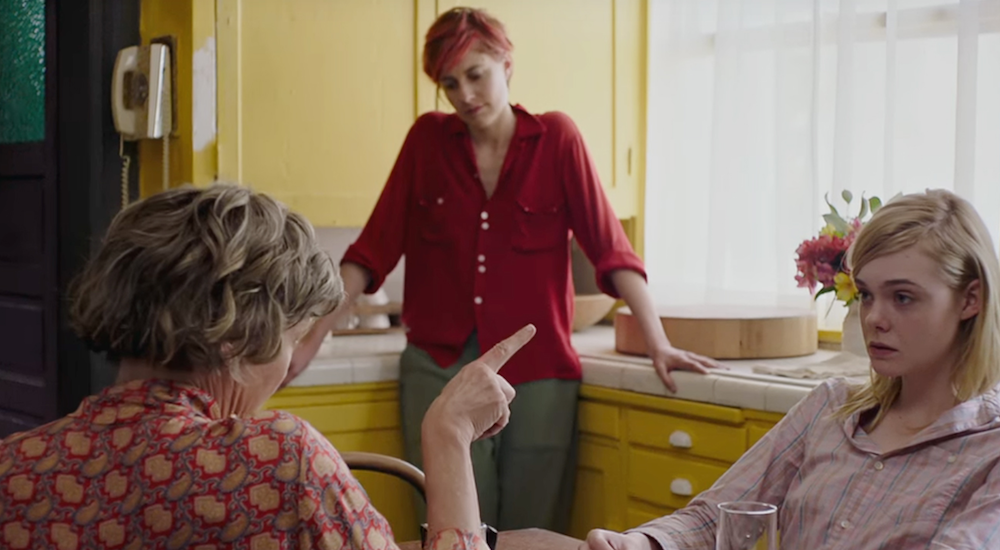Mike Mills returns to the big screen post-Beginners (2010) with 20th Century Women. While the former is loosely based on the director’s own father, here we get another story loosely based on Mills’ mother. As in Beginners, the autobiographical angle works for him and Annette Bening delivers an Oscar-worthy performance as Dorothea Fields.
Dorothea Fields is the mother of Jamie (Lucas Jade Zumann), a curious 15 year-old trying to find his way in the world in 1979. Dorothea seems to embody the old guard and the new. Born during the Great Depression (something Jamie uses to humorously explain her shortcomings), Dorothea is both traditional and free-spirited. She gives the Talking Heads and Black Flag a try but ultimately defaults to Louie Armstrong. As Jaime becomes your typical moody teenager, Dorothea enlists the help of her boarders, renting rooms in her constantly-under-renovation Santa Barbara home, to help shape Jaime into the man he should be. These helpers include Abbie (Greta Gerwig), a twenty-something with a bright red pixie cut who frequents punk shows, and William (Billy Crudup), a forty-something burnout coasting through life and women. She also enlists the help of Julie (Elle Fanning), Jaime’s best friend and crush who spends her time rebelling against her therapist mother with drugs and sex.
The film feels steeped in nostalgia, no doubt due to its autobiographical nature. It feels like it’s capturing a simpler time, a sentiment Dorothea echoes via voiceover when she talks about what’s awaiting them all around the corner in the 1980s. Through such voiceovers, time jumps and archival footage, Mills paints a vivid picture. While clothes in the 70s are cheesy to begin with, the characters’ wardrobes are threadbare and simple enough to never get too distracting and only add authenticity. Combine that with common human experiences from adolescence, young adulthood, and mid-life adulthood, 20th Century Women’s characters feel satisfyingly real.
That said, that realness tends to fray when the characters speak to one another. Full of witty comments and easy banter, the dialogue and tone can come across as too polished and too indie. With quick lines and big conversations, 20th Century Women can become too twee and it jolts the viewer out of what’s happening on screen and reminds you you’re watching an indie because people in real life never talk this way.
Much as Christopher Plummer was the breakout star of Beginners, Annette Bening is phenomenal as Dorothea. She remarks at one point that cigarettes weren’t bad for you when she first starting smoking them. Instead they were stylish. She pulls it off with a perfect mix of vanity, dry wit, and loneliness.
20th Century Women is a nostalgic and enjoyable follow up to 2010’s Beginners. While I’d be shocked if Bening doesn’t earn a nomination for her powerhouse performance, the film as a whole comes across as a little too polished and meandering to truly excel.

